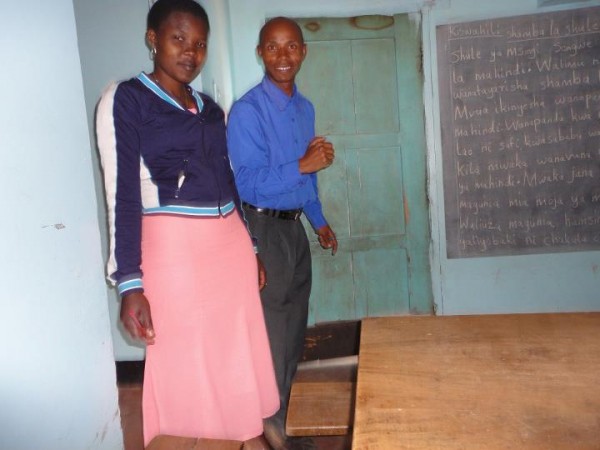Cell Phones Help Reach Community Members In Africa
 Most people know cell phones are widely used in Africa, but we were curious how they are being used in community-based programs. So we interviewed Juhudi Mbwambo, the Executive Director of Elimu Community Light, a Firelight partner in Tanzania to ask how he uses SMS technology to communicate with the beneficiaries of the programs...
Most people know cell phones are widely used in Africa, but we were curious how they are being used in community-based programs. So we interviewed Juhudi Mbwambo, the Executive Director of Elimu Community Light, a Firelight partner in Tanzania to ask how he uses SMS technology to communicate with the beneficiaries of the programs...
What problem are you trying to address with SMS technology?
Lack of knowledge and skills needed for improving Early Childhood Development and Education among parents and caregivers.
Why did you choose to use SMS as a way to connect with beneficiaries of your programs?
It is easy technology for everyone in the community, including children themselves. It is also easy to disseminate information to many people in a short time. Most of family members, especially adults, have mobile phones so they may share the information at the family level. People with phones have a habit to read SMS immediately because they use their phones daily. The SMS is easy to read, re-read and responded to within a short time and with low cost compared with other communication technologies available in the community. It gives an opportunity to establish online information sharing and conversations as well as disseminates information broadly among community members at any time. It is easy to assure that your target recipients have received information through SMS delivery. They also reply automatically as you send SMS to them. The information will reach the recipients at any time and any place, no matter where they are, or what are they doing.
Did you consider using other forms of technology to communicate with families/parents/community members?
We considered using direct calls for the purpose of clarifications or establishing broad conversations, knowledge and/or professional support. We also considered social media such as emails, Facebook, Website and blog for those who access Internet. We are doing this to help to broaden topics and keep information available as long as participants desire to share.
I know you did a pilot of the SMS with some families, how many SMS messages did you end up sending and how many responses did you get?
I sent 40 SMS. 14 replied immediately to thank or raise more questions, 9 called to ask more questions and to know who sent the message, 5 called to thank and ask us to send more SMS, 10 did not responded but later on we asked them what came to their minds after reading the SMS we sent them. They replied that it is so nice and helpful for them to consider their children’s needs towards nurturing and investing to their children. 2 recipients provided their opinions to improve the SMS. They proposed that the SMS should start with the words FROM ECOLI: or Greetings from ECOLI:
What was the initial question that you sent out?
An initial SMS sent to recipients was a statement: The prosperity or loss of your children’s future depends on what you are investing to them during early childhood years. What are you investing to your young child now? Parent or guardian the right time is now. Know. Understand. Do now. (the bolded part is the promotion phrase that was added at the bottom of each message to catalyze and promote parents' participation)
I know you said that some people texted you back and asked "do you really want me to answer the question?" What were some of the other responses?
- A young child no nothing
- I can deal with him/her after she/he completing grade seven
- Have you ever think about the poor services provided to children by government and you convincing me with your words? Nothing I can do as the system itself not supports the development of children.
- Your message has reminded me about my responsibilities please send me more SMS
- Please send me more I can circulate to others.
- The SMS provides the important education to support my child.
- Why you did not send me messages like the one you sent me? I need them.
- The SMS is so nice but we need to talk more about it.
Other responses after we called the people who didn’t respond:
- I was busy so I didn’t reply your message but I like it.
- I didn’t have enough credit to reply your SMS but it is so nice.
- I didn’t get time to reply but I need them
- OK. I read it but do you really want me to reply?
- I talked about this SMS with my wife, it enabled us consider what we need to invest for our children.
Thank you, Juhudi! It's nice to hear how cell phones are used at the community-level.
Firelight is able to fund Elimu Community Light due to the generous support of The William and Flora Hewlett Foundation.
This blog was written by Juhudi Mbwambo, Kristen Molyneaux and Bridget Zwimpfer. Read our previous blogs about ECOLI: It Takes A Community To Educate A Child and Making A Child's Education A Community Goal in Tanzania
Visit ECOLI online! www.ecoli-tz.org or leave them a comment on their Facebook page!

